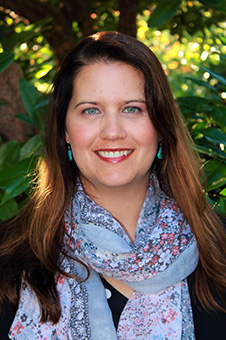Unwavering focus, superior analytical ability and mathematical talent are just some of the untapped skills neurodivergent people can bring to workplaces, a University of Otago researcher has highlighted.

Dr Dana L Ott
Lead author Dr Dana L Ott, of the Department of Management, has written a report which provides practical recommendations for multinational corporations (MNCs) to improve their neurodiversity inclusion.
Neurodiversity refers to neurological differences in the human brain, and includes a range of conditions such as attention deficit hyperactivity disorder (ADHD), dyslexia, and autism spectrum disorder (ASD).
Dr Ott says there are multiple benefits to encouraging diversity in the workplace, yet neurodivergent people are often unemployed.
“Embracing neurodiversity is both the smart and the right thing to do,” she says.
“Employing and supporting neurodivergent people within organisations also means potentially gaining access to a variety of skills.
“These include, but are not limited to, unwavering focus and pattern recognition capabilities, excellent analytical and problem-solving abilities, and memory and mathematical skills.”
The report, published in AIB Insights, recommends ways for MNCs to embrace neurodiversity.
Dr Ott says the first step is for employers to forget everything they think they know about neurodiversity and get to know the person.
“This should include asking them what adjustments or accommodations will help support them to reach their full potential but also allowing them to tell you about their skills and strengths, and the challenges they face.”
Employers should also aim to develop ways in which they can allow for individualisation throughout the employee lifecycle.
An important starting point is to ditch the traditional recruitment processes – resume reviews and formal interviews – which can potentially disadvantage neurodivergent candidates, Dr Ott says.
“It would be much more meaningful and insightful to take a strengths-based approach and develop opportunities for each individual to demonstrate their capabilities.
“Diversity is about visible and invisible uniqueness among individuals so we cannot use the same measures and ways of evaluating all potential employees.
“If companies want to support and capture diversity, they need to be accommodating to give individuals the opportunity to show what they are capable of.”
Finally, MNCs should develop a culture where neurodivergent employees feel safe disclosing their condition without the fear of being stigmatised or discriminated against.
These recommendations can be implemented in a range of organisations, no matter the size.
In some cases, employers of smaller companies may find it easier.
“Organisations need to be champions of diversity, and this requires having, recognising, harnessing, and celebrating diversity at all levels.
“Everyone deserves the opportunity to gain meaningful work.”
Publication details:
Neurodiversity, Equity, and Inclusion in MNCs
Dana L Ott, Emily Russo, Miriam Moeller
AIB Insights
For more information, please contact:
Jessica Wilson
Adviser Media Engagement
University of Otago
Mob +64 21 279 5016
Email jessica.wilson@otago.ac.nz
Find an Otago Expert
Use our Media Expertise Database to find an Otago researcher for media comment.







